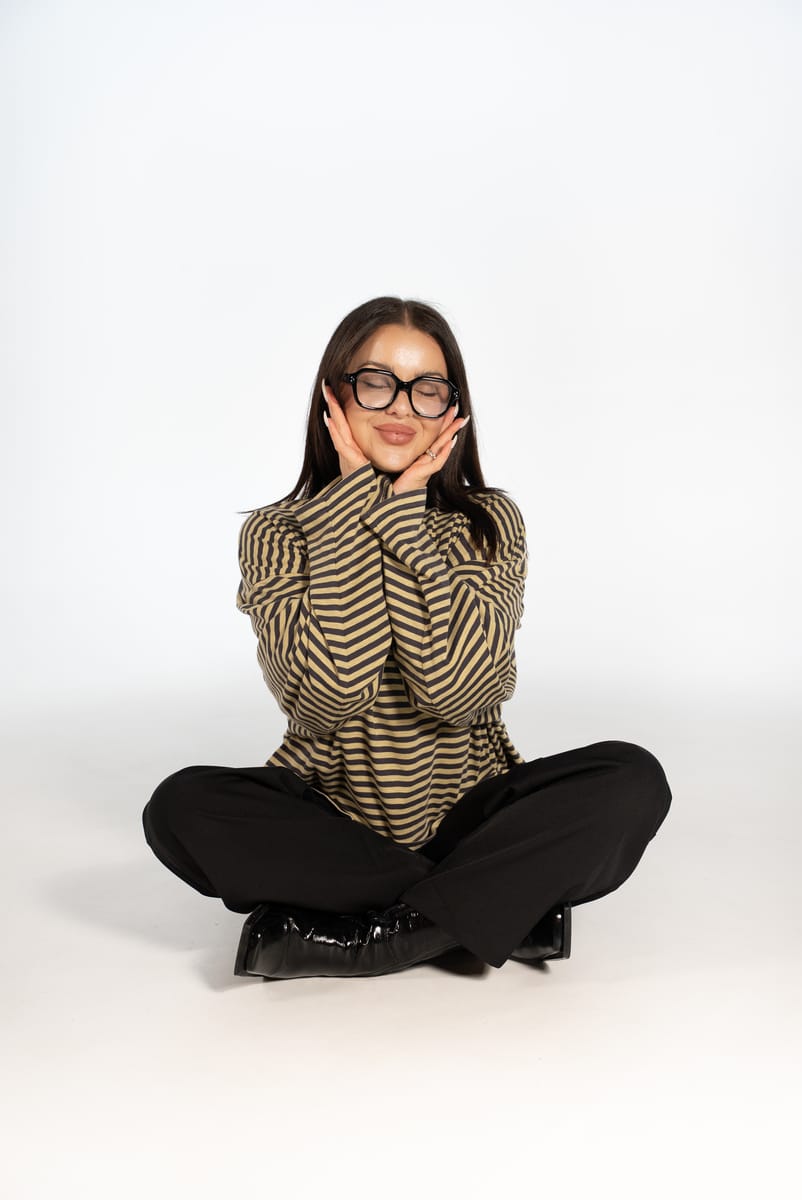
Is it just me, or does scrolling any app at the moment feel like you’re being personally attacked by abs?
Some bronzed, lean woman shoving cottage cheese into a wrap, whispering about calorie deficits like it’s sacred scripture.
Some guy inhaling three dozen eggs and steak off a chopping board as though the recession doesn’t exist and cholesterol is a love language.
The new public sphere isn’t newsfeeds—it’s torsos.
Before I rant, LISTEN TO ME. Prioritising protein works. Lifting heavy works. Aggressive deficits work. I’ve been at it myself long enough to watch the weekly changes happen. But here’s the scam within these truths: the time, money, and ruthless commitment it takes to actually look like these people online is a full-time freaking job.
You try hitting 10k steps, smashing PRs, keeping your house clean, advancing your career, guzzling 3L of water, and sleeping eight hours a night without collapsing into dust. Meanwhile, these influencers’ literal job is to stay hot and sell hotness back to you, like you’re one shaker bottle away from a jawline (as if.)
This is what makes today’s wellness economy different from the old-school “stay active, eat your greens” vibe.
Influencers don’t just have bodies and use them; they monetise them. Their abs are content assets. Their glutes are sales funnels. Their routines are optimised not for health, but for parasocial scalability. It’s no longer about being fit enough to carry groceries without wheezing. It’s about being fit enough to turn your body into an ongoing brand partnership.
We’ve seen versions of this before. The aerobics craze of the 80s. The Atkins diet in the 2000s. The kale-and-yoga era of early Instagram.
But what makes this era uniquely feral is the always-on monetisation. It’s OnlyFans logic applied to wellness: give me intimacy, give me access, and then sell me the tools to replicate it, protein powder, coaching plans, “what I eat in a day” PDFs. Bodies as subscription services.
The fact that it’s marketed as accessible... well, that is the entire trap, darling.
“Anyone can do it in six weeks.” Yeah, with unlimited recovery time, brand deals paying for supplements, maybe even a coach, a chef, or just the sheer privilege of not needing to wedge their workout between a Teams call and the washing machine.
For the rest of us, trying to mirror this lifestyle is like cosplaying as a pro athlete while living as a civilian. No wait, that’s literally what it is. And that’s my whole point—taking care of yourself isn’t toxic. In fact, prioritising fitness, sleep, nutrition, these are some of the few grounding, life-improving habits I’ve found in a world that wants us all chronically exhausted.
The problem isn’t wellness. The problem is how wellness has been weaponised into content, and content into commerce.
When your hotness becomes a product, the message you sell is never “be stronger” or “feel good.” It’s “you are always one step behind.” Not lean enough, not disciplined enough, not hydrated enough.
Every meal becomes an ad, every workout a sales pitch, every selfie a reminder that you, too, could be this person if only you bought in. And me? I want to throw my phone as far as the eye can see while primal screaming at the top of my lungs…
But that’s the tale as old as time, how capitalism desire turns into homework.
The end result means scrolling feels like being barked at by a wall of torsos. Fitness doesn’t look joyful, it looks exhausting, There’s nothing sexy about watching someone eat chicken breast and rice under a ring light. It’s capitalism, turning your desire into more work. Tracking, counting, measuring, disciplining.
And the irony is the more “disciplined” and “accessible” it’s marketed, the less accessible it actually becomes. Because while you’re trying to hit your macros, your steps, your sleep quota, and your water intake, life is still happening; work deadlines, family drama, laundry piles the size of Vesuvius, the basic chaos of just fkn being alive.
Maybe the only sane stance is to recognise the split.
Yes, care for your body. Yes, eat protein, lift heavy, drink water, walk outside. But also, know that the online bodies shouting at you are running a full-time operation to monetise their physiques. You don’t have to turn your life into unpaid overtime just to cosplay their aesthetics. Hotness has become a hustle. And hustles always demand more from you than they give back.
The culture may keep selling us abs as aspiration, but let’s not confuse that with health. Because real wellness, the kind that lets you get through your day without crashing, the kind that keeps you strong into old age, isn’t sexy, it’s sustainable.
And probably doesn’t require a ring light.
-Sophie Randell, Writer
Not going viral yet?
We get it. Creating content that does numbers is harder than it looks. But doing those big numbers is the fastest way to grow your brand. So if you’re tired of throwing sh*t at the wall and seeing what sticks, you’re in luck. Because making our clients go viral is kinda what we do every single day.
